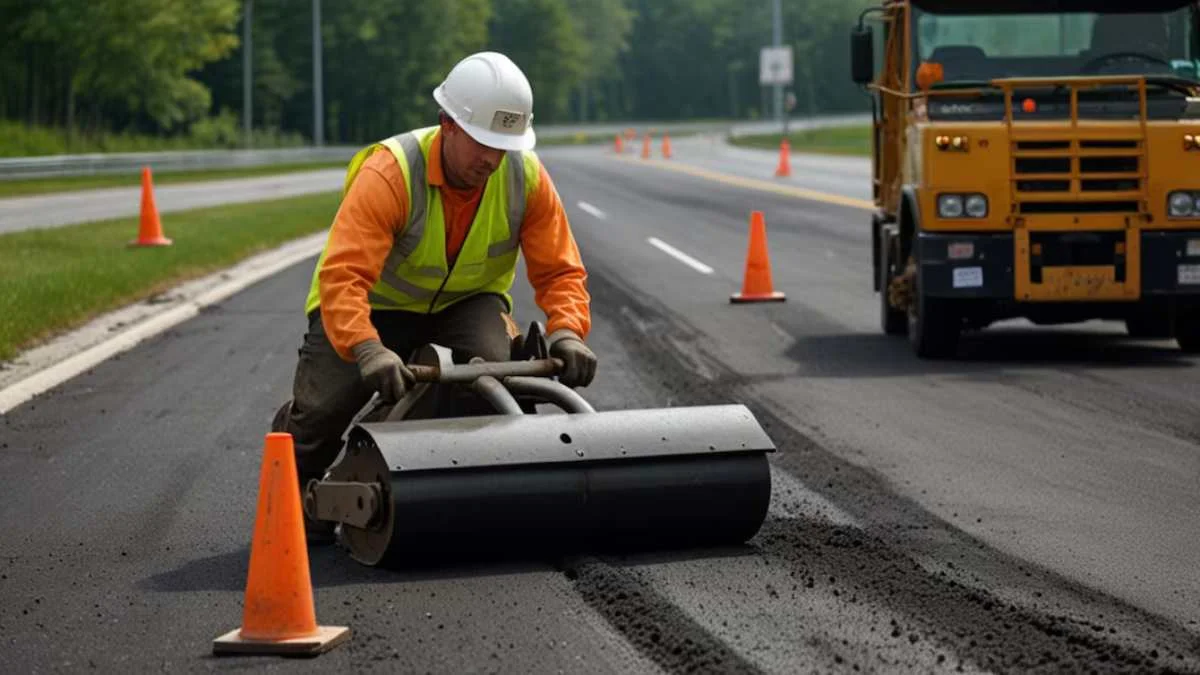GENERAL
Why Precision Grading is Critical for Long-Lasting Asphalt Driveways

When it comes to constructing a durable and long-lasting asphalt driveway, precision grading plays a vital role in the overall success of the project. Many people focus on the top layer of asphalt, but the groundwork underneath is just as important. Grading creates the foundation that supports the asphalt, ensuring proper drainage, load-bearing capacity, and a smooth finish. Without precision in this stage, even the best asphalt can fail prematurely due to issues like cracking, sinking, or pooling water.
In this article, we’ll explore the importance of precision grading in asphalt paving and how it contributes to the longevity of driveways, parking lots, and roads.
Table of Contents
1. What is Precision Grading?
Precision grading refers to the process of leveling and shaping the ground surface before laying the asphalt. This step ensures that the base is properly contoured to support the asphalt and direct water away from the surface. Grading involves the use of specialized equipment, such as graders and excavators, to remove uneven areas, fill in low spots, and create the desired slope.
Key Aspects of Precision Grading:
- Surface Smoothing: A smooth and even surface is essential for preventing dips and depressions that can cause asphalt to settle unevenly. Graders are used to level the ground and create a uniform base for the asphalt.
- Proper Slope Creation: Grading also involves creating the appropriate slope to allow for proper drainage. Without an adequate slope, water will accumulate on the surface, leading to cracks, potholes, and other forms of damage over time.
- Compaction: Once the ground is graded, it is compacted to increase its stability. Compaction ensures that the ground can support the weight of vehicles without shifting or settling, which is critical for the longevity of driveways, parking lots, and roads.
Without precision in this step, the final asphalt surface may be prone to early deterioration, leading to costly repairs and reduced lifespan.
2. How Grading Impacts Drainage
One of the most important reasons for precision grading in asphalt paving is to ensure proper drainage. Water is one of the main culprits behind the deterioration of asphalt surfaces. When water is allowed to pool on the surface, it seeps into cracks and can cause the asphalt to weaken, crack, or form potholes.
How Grading Affects Drainage:
- Slope and Water Flow: A properly graded surface will have a gentle slope that allows water to flow away from the asphalt. The slope prevents water from accumulating on the surface, which is crucial in preventing moisture from penetrating the asphalt and causing long-term damage.
- Avoiding Pooling Water: If the grading is not done correctly, low spots can form, allowing water to pool in certain areas. Pooling water accelerates the deterioration of asphalt, leading to cracks, potholes, and even structural failure over time. By grading the surface with precision, contractors can ensure that water drains efficiently, extending the life of the asphalt.
- Proper Drainage Solutions: In some cases, simply grading the surface is not enough to manage water effectively. Drainage installation is often necessary to direct water away from the asphalt and into proper drainage systems, such as catch basins, storm drains, or trenches. Integrating drainage solutions into the grading process ensures a longer-lasting surface with fewer water-related problems.
Good drainage is essential for maintaining the integrity of asphalt surfaces, and proper grading is the first step in achieving that.
3. Extending the Lifespan of Asphalt Surfaces
The quality of the grading process directly affects the lifespan of any asphalt driveway, parking lot, or road. A poorly graded surface can lead to premature wear and tear, resulting in frequent repairs and a shorter overall lifespan. On the other hand, precision grading ensures that the asphalt will remain durable and resistant to environmental factors for years to come.
How Grading Contributes to Durability:
- Even Load Distribution: Grading helps to evenly distribute the weight of vehicles across the surface. Without proper grading, certain areas may bear more weight than others, leading to depressions, cracks, or even complete failure in localized spots. An even, compacted base prevents this uneven weight distribution and extends the life of the surface.
- Preventing Erosion: Poorly graded surfaces can lead to erosion around the edges of the asphalt. Water runoff from heavy rains or melting snow can erode the base, undermining the asphalt and causing it to crack or sink. Precision grading prevents erosion by directing water away from vulnerable areas and toward proper drainage systems.
- Reducing Maintenance Costs: By ensuring that the grading is done correctly, the need for future repairs and maintenance is reduced. Well-graded surfaces are less likely to develop cracks, potholes, and other issues that require costly fixes. Investing in precision grading upfront saves money in the long run by minimizing the need for frequent repairs and extending the life of the asphalt.
A well-graded surface supports the asphalt, reduces stress on the material, and ultimately ensures a more durable and long-lasting product.
4. Grading in Different Environments
Precision grading is not a one-size-fits-all approach. The requirements for grading vary depending on the specific environment and the type of project. Whether you’re working on a driveway, parking lot, or road, each setting has its own unique challenges.
Considerations for Different Environments:
- Driveways: Residential driveways often require careful grading to ensure proper drainage without creating steep slopes that could cause issues for vehicles. The goal is to create a surface that is both functional and aesthetically pleasing, directing water away from the home and driveway.
- Parking Lots: For parking lots, precision grading ensures that large areas are properly sloped for drainage without creating hazards for pedestrians or vehicles. Drainage systems may need to be integrated to handle the volume of water that accumulates during storms.
- Roads: Roads and highways require extensive grading to ensure they can support heavy traffic and withstand the elements. Precision grading helps create a stable base, reduce the risk of erosion, and ensure that water flows away from the road surface without causing damage.
The approach to grading varies depending on the environment, but the principles remain the same: create a smooth, even surface that promotes drainage and provides long-term support for the asphalt.
5. The Role of Professional Expertise in Precision Grading
Precision grading is a highly technical process that requires both skill and experience. While it may seem like a simple step in the asphalt paving process, it’s actually one of the most critical. Professional contractors with experience in grading and excavation understand how to account for factors such as soil type, drainage requirements, and slope to create the ideal foundation for asphalt.
Why Professional Grading Matters:
- Proper Equipment: Grading requires specialized equipment, such as graders, bulldozers, and compactors, to ensure a smooth and even surface. Experienced contractors know how to use this equipment to achieve the desired slope and compaction levels.
- Soil and Base Considerations: Different types of soil respond differently to grading and compaction. Contractors must evaluate the soil and determine whether additional base materials are needed to create a stable foundation for the asphalt. In some cases, excavation may be required to remove unstable soil and replace it with more suitable material.
- Accuracy in Grading: Precision is key in grading. Even small mistakes in the slope or compaction can lead to significant problems down the road. Professional contractors use lasers, GPS, and other advanced tools to ensure that the grading is accurate and meets the project’s specifications.
Hiring a professional for precision grading ensures that the project is completed to the highest standards, resulting in a durable and long-lasting asphalt surface.
Conclusion
Precision grading is a fundamental step in creating durable and long-lasting asphalt driveways, parking lots, and roads. By ensuring proper slope, drainage, and compaction, grading sets the foundation for asphalt to perform well under traffic and environmental conditions. Whether you’re working on a small residential driveway or a large commercial parking lot, investing in precision grading ensures that your project will stand the test of time.
By partnering with experienced professionals like Pavement Solutions Inc, you can be confident that your project will receive the careful attention to detail it deserves, resulting in a smooth, durable surface that lasts for years.
-

 GENERAL2 months ago
GENERAL2 months agoUncovering the World of кинокрадко: The Dark Side of Film Piracy
-

 GENERAL1 month ago
GENERAL1 month agoUnveiling the Art of преводсч: How Translators Bridge Language Barriers
-

 GENERAL3 weeks ago
GENERAL3 weeks agoChristofle – For Those Who Dream of Family Heirloom Silver
-

 YOGA1 year ago
YOGA1 year ago4 Person Yoga Poses for Beginners


























